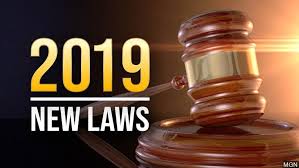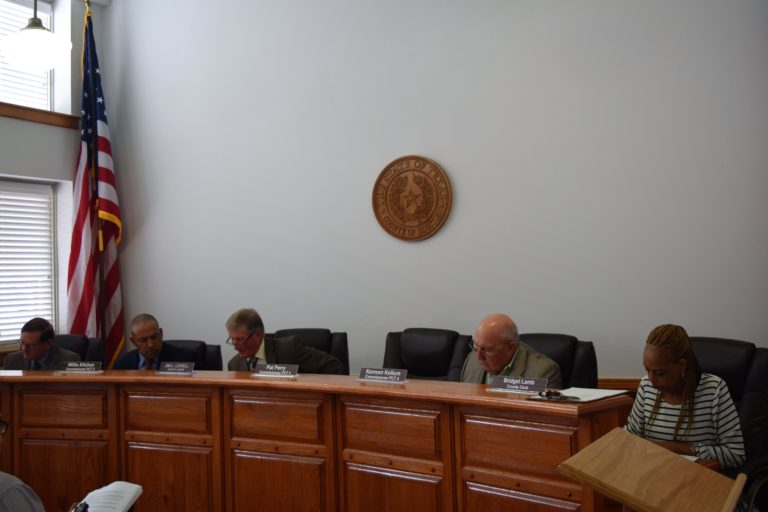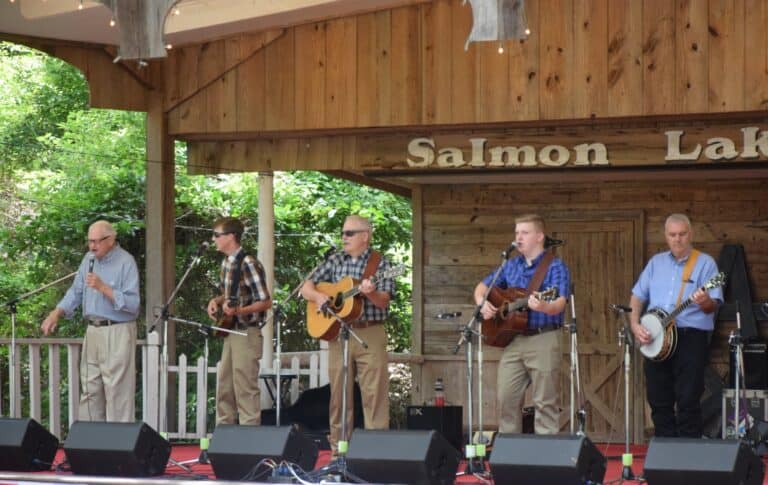New Laws Take Effect Sept. 1

By Will Johnson
Messenger Reporter
EAST TEXAS – Beginning on Sept. 1, residents in the state of Texas will be faced with a bevy of new laws. Some you may have heard of, while others might have flown under the radar.
While there are many more new laws, these are just a few that seem to be generating the most interest.
Texans love their guns and Gov. Gregg Abbott signed 10 new pieces of legislation into law concerning firearms.
According to the National Rifle Association these new laws are:
- House Bill (HB) 121 – Providing a legal defense for license-to-carry holders who unknowingly enter establishments with 30.06 or 30.07 signs, as long they promptly leave when verbally informed of the policy.
- HB 302 – Prohibits “no firearms” clauses in future residential lease agreements and protects a tenant’s rights to possess lawfully-owned firearms and ammunition in dwelling units.
- HB 1143 -Prevents school districts from effectively prohibiting the possession of firearms in private motor vehicles by limiting their authority to regulate the manner in which they are stored in locked cars and trucks – including by employees.
- HB 1177 – Protects citizens from being charged with a crime for carrying a handgun without a license- to-carry while evacuating from an area during a declared state or local disaster, or while returning to that area.
- HB 1791 – Closes loopholes in the state’s “wrongful exclusion” law that cities, counties and state agencies have been using to restrict license-to-carry holders in government buildings.
- HB 2363 – Allows foster parents to store firearms in a safe and secure manner while making them more readily accessible for personal protection purposes.
- HB 3231 – Improves and modernizes the state’s firearms preemption law, curbs the ability of municipalities to abuse their zoning authority and circumvent state law to restrict the sale or transfer of firearms and ammunition at the local level.
- Senate Bill (SB) 535 – Strikes “churches, synagogues, or other places of worship” from the list of prohibited locations in the Penal Code, clarifying that these places have the same right enjoyed by nearly all other controllers of private property in the state to decide whether to allow license-to-carry holders on their premises.
- SB 741 – Prohibits a property owners’ association from including or enforcing a provision in a dedicatory instrument that prohibits, restricts, or has the effect of prohibiting or restricting any person who is otherwise authorized from lawfully possessing, transporting, or storing a firearm.
- SB 772 – Provides civil liability protection to business establishments which choose not to post 30.06/30.07 signs, making them less vulnerable to frivolous lawsuits and giving them an incentive to adopt permissive policies for the carrying of handguns by law-abiding citizens on their premises.
Also concerning self-defense, HB 446 legalizes a person’s right to carry brass knuckles, kitty key chains, clubs and other self-defense items in public.
Changing gears in a somewhat drastic fashion, HB 234 legalizes lemonade stands. Prior to this legislation, cities and neighborhoods had banned lemonade stands “… and required permits for children to operate them. Support for this law grew after police in Overton shut down a lemonade stand run by two siblings who were raising money to buy their dad a Father’s Day present. Now, all children will be able to operate lemonade stands without a license,” according to Mintie Betts with KETK News.
Staying with the beverage theme, SB 1232 allows customers to purchase and take beer home from craft breweries in Texas. The bill also allows for the delivery of alcoholic beverages to a person’s home.
Legislation concerning age restrictions also takes effect on Sept. 1. SB 21 raises the purchasing and smoking age from 18 to 21 for cigarettes, e-cigarettes and any other tobacco products. In addition, HB1518 raises the age for the sale of cough syrup containing dextromethorphan to 18. Dextromethorphan is a common ingredient in cough syrup which may be abused by some people.
There is good news for people who have had their driver’s license suspended. The Texas Driver Responsibility surcharge program is going away after HB 2048 was signed into law. As a result, the legislation will reinstate the licenses of a large number of drivers who have had their licenses suspended. State traffic fines and intoxicated driver fines, however, are planned to increase under the new law.
A bill dubbed the “porch pirate law” also goes into effect on Sept. 1 and makes it a felony to steal anything considered mail, including letters, postcards, packages and other sealed items.
According to the new law, the crime is considered as a first-degree felony if you steal from more than 50 people, a second-degree felony if you steal from 20-50 people and a state jail felony if you steal from less than 10 people.
In a law that has been a long time in the making, Texas will ban the practice of “spoofing,” under HB 1992, beginning on Sept. 1. Spoofing occurs when a caller intentionally falsifies caller IDs to mislead the recipient into revealing personal information, which is then sold or otherwise misused. Fines can range up to $1,000 per call.
Speaking of pests, another pest is the feral hog population in Texas. Senate Bill 317 allows people to hunt feral hogs without a hunting license. The law was passed unanimously by the House and Senate before going to the governor’s desk. Texas A&M AgriLife Extension has estimated feral hogs cause over $50 million in damage each year.
Last on this list, but certainly not least, is property tax legislation. Senate Bill 2 doesn’t reduce property taxes but it does slow their growth.
According to the Dallas Morning News, “If a city or county wants to increase revenue by more than 3.5% in a year, they need approval in an election. In the past, the cap was 8% before an election was called. So that meant governments increased their budgets by 7.99% if needed. For school districts, the cap is now 2.5% for tax increases — or an election must be called.”
The newspaper further stated, “Elected officials can’t hide these tax elections in a low-turnout June or August election when voters aren’t paying close attention. They must be part of the November general election.”
Will Johnson may be contacted via e-mail at [email protected].






